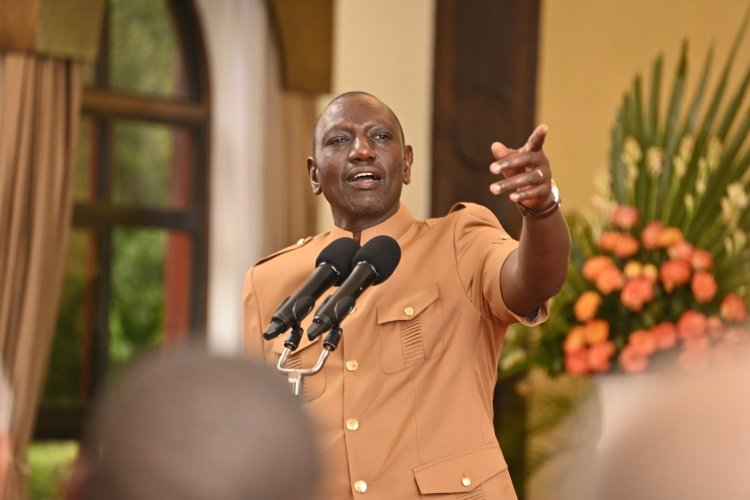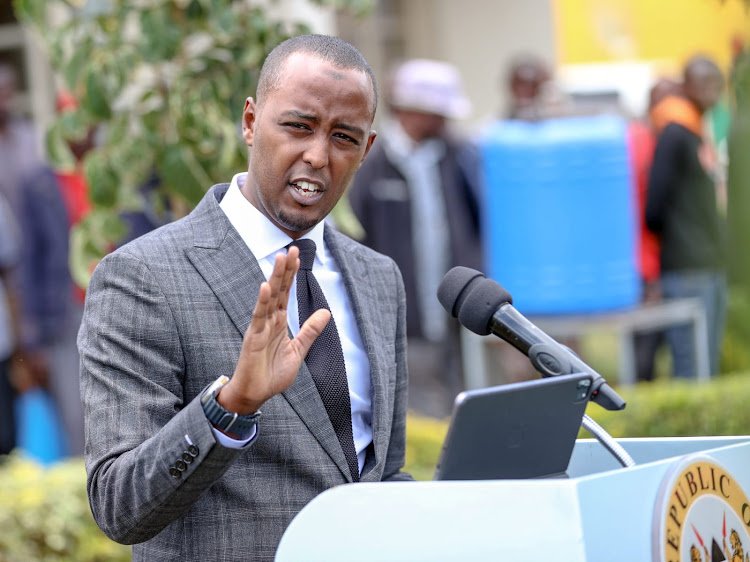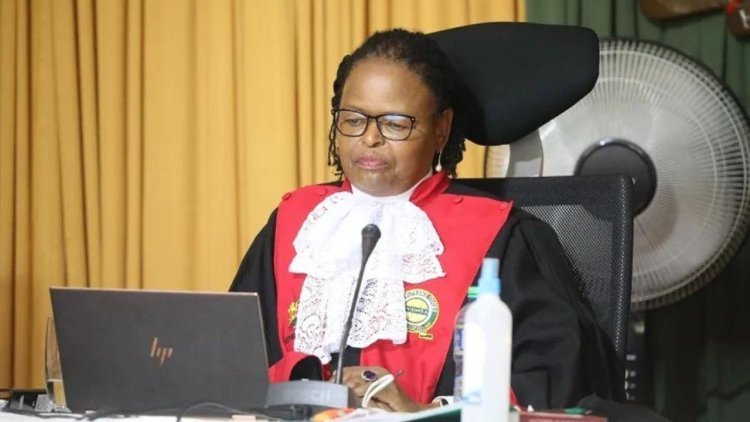Govt Defends Ruto Amidst Simmering Row With Judiciary, LSK
State House spokesperson Hussein Mohamed indicated that the advice by LSK on the matter was not necessary.

The government through State House has come to the aid of President William Ruto hours after he came under siege from Chief Justice (CJ) Martha Koome and the Law Society of Kenya (LSK) over his remarks that appeared to undermine the independence of the Judiciary and Constitutionalism.
In a statement on Wednesday, January 3, State House spokesperson Hussein Mohamed indicated that the advice by LSK on the matter was not necessary.
State House argued that the President has consistently championed upholding the rule of law and constitutional principles, with a particular emphasis on safeguarding the independence of the Judiciary.
"This commitment has been evident through his unwavering respect for and compliance with recent court orders, notably those pertaining to the Government's Affordable Housing Program.

State House Spokesperson Hussein Mohamed speaking in Kisii on March 22, 2023. /FILE
"From the onset of his presidency, the President took deliberate measures to rectify past injustices by appointing judicial officers who, due to Executive impunity, had been unjustly denied their rightful appointments. In his steadfast belief in the autonomy of the Judiciary, the Head of State also purposefully increased the budget allocation to support the Judiciary's operational needs," read the statement in part.
While the government agreed with LSK's sentiments that Executive impunity was unacceptable, it added that legislative impunity, by its measure, is also unacceptable and so is judicial impunity.
"As a believer in the Constitution, President Ruto recognises the imperative to lead by example in defending our constitutional values. This includes shielding innocent citizens from judicial misconduct perpetrated by corrupt officers colluding with vested interests.
"Corruption, whether within the Judiciary, the Executive or the Legislature and, indeed, among the general public must not find refuge behind the shield of judicial independence. It is our duty to expose and hold accountable those who engage in corrupt practices whoever they maybe and wherever they are," Mohamed affirmed.
The spokesperson referred to Article 43 of the Constitution which obligates the State, led by the President, to provide social and economic rights to Kenyans. Under this obligation in the Constitution, the President put together a manifesto to provide affordable and decent housing, universal health coverage, ensure production of adequate food and provision of social security and education.
Mohamed added that the manifesto was prepared and organised in consultation with citizens at fora in all the 47 counties in Kenya during the election campaigns.
In adherence to the rule of law, the President, in collaboration with relevant ministries, formulated various policies and legislation on affordable housing and universal healthcare, which were also approved by the Cabinet. Subsequently, Bills were transmitted to Parliament, subjected to public participation and passed into law.
"Historically, Kenya has been held back by a few corrupt individuals and those with vested interests who impede inclusive national development. This is a moment in history when our country has a chance to break free from the chains of impunity and realise the transformation mandated by the people and legislated by Parliament. This can only be achieved by countering the influence of vested interests and corrupt judicial officials," added the statement.
In his recall, Mohamed disclosed that in December, independent institutions were barred from charging corruption suspects, who upon investigations by the Ethics and Anti-Corruption Commission (EACC) and the Directorate of Criminal Investigations (DCI) found a way to bypass the criminal justice system and walk free with impunity.
Article 10 of the Constitution obliges all State Organs, State officers, public officers, and every individual involved in applying or interpreting the Constitution to be guided by national values and principles of governance, including public participation.
"Just last month, a judicial official outrightly dismissed the relevance of public participation, a value expressly provided in the Constitution that gives citizens a premium place in law-making. Such actions from some judicial officials are signs of judicial tyranny and impunity perpetuated by compromised and corrupt judicial officers working with beneficiaries of the rot that had permeated our healthcare system," Mohamed complained.
"The President cannot be expected to be a mere observer in the face of such injustices. He cannot remain mum."
He lamented that the impunity at the courts was contributing to increased unemployment, unnecessary imposition of medical bills and loss of Kenyan lives which could have been prevented through Universal Health Coverage.
Mohamed also feared that the impunity was hampering the government's plan to alleviate Kenyans from poverty through affordable and decent housing to eliminate the threat of slums, occupied by more than 7 million Kenyans.
"We are back to the clamour for judiciary reforms last witnessed during President Mwaki Kibaki's tenure when it was said: 'Why pay for a lawyer's services when you can pay a judge?' We must never allow the return of such impunity in Kenya," the spokesperson affirmed."
"The executive is mandated to deliver to the people after an election. Should the President fulfil commitments to the people and their needs, or should the Executive seek concurrence from the Judiciary to deliver on what the people voted for?"







